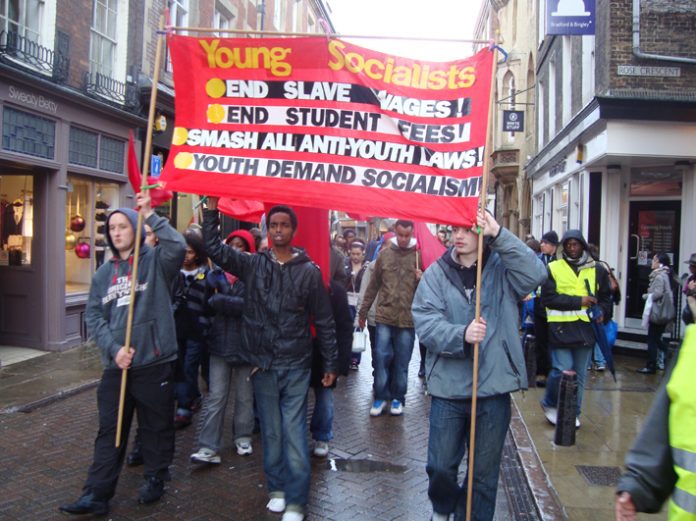‘AFTER falling for two successive months, today’s rise in youth unemployment is disappointing,’ said TUC leader Brendan Barber.
Paul Kenny GMB General Secretary commented: ‘It will be a bleak Christmas in the households of the unemployed and of those who have lost their jobs in this bankers’ recession.’
The number of people unemployed in the UK rose by 21,000 between August and October to 2.49 million.
The unemployment rate is currently 7.9%, according to the ONS figures.
However, the number of people claiming unemployment benefit fell by 6,300 in November to 1.63 million, the first fall since February 2008.
The ONS figures showed that the number of 16-to-24 year olds who are unemployed rose to 952,000, the highest figure since records began in 1992.
The number of out of work 18-to-24 year olds increased by 26,000.
The attitude of the government to the unemployment disaster was relayed by Yvette Cooper, Secretary of State for Work and Pensions.
She said: ‘It is still tough for a lot of people and we still expect unemployment to increase again in the New Year.’
The Liberal Democrat work and pensions secretary, Steve Webb, insisted that the figures showed the government was failing to solve the problem of youth unemployment.
He said: ‘This is another sad milestone for young people. The government’s headline-grabbing announcements haven’t even scratched the surface of the problems young people are facing in this recession.’
The ONS figures showed that the south-east of England saw the biggest rise in unemployment during the quarter, up by 15,000 people. Jobless totals fell in the North West, the West Midlands and the South West.
The number of people unemployed for more than a year increased by 49,000 in the latest quarter to 620,000, the highest since 1997.
The number of people who say they are working part-time because they cannot find a full-time position rose by 34,000 in the quarter and now stands at over 1 million.
There were 30 million jobs in the economy in September, down by 127,000 over the quarter and 649,000 fewer than a year ago.
The number of people classed as economically inactive, including those on long-term sickness or who have given up looking for a job, was 7.9 million, down by 1,000 over the three months but up by 96,000 compared to last year.
More than one in five working-age people are now economically inactive.
